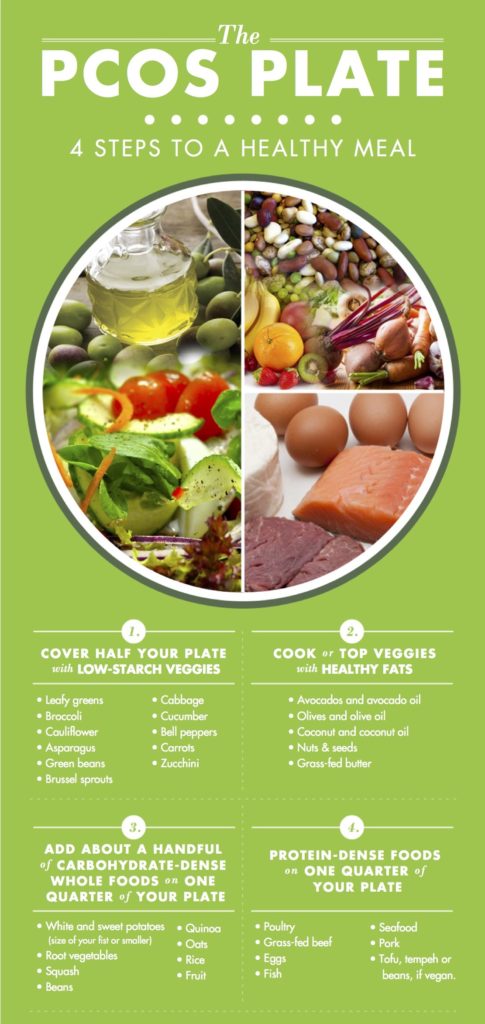Being tired is the worst. In fact, the only thing that is worse than being tired is when you realize you are tired of feeling tired all the time.
Fatigue is a vague symptom and therefore, it does not get much attention from PCOS experts. But if you ask one of the many women living with PCOS (including me), fatigue is one of the most troubling symptoms of Polycystic Ovarian Syndrome.
The fatigue I am talking about is different from boredom or being sleepy after a night of Netflix binging. It is a truly physical sense of exhaustion, where you might want to do something, but you just feel too worn out to make it happen. I’ve turned down wine nights with the girls and procrastinated on writing a blog post because fatigue has reared its ugly head.
Today I am going to give you a practical approach to managing fatigue. But first I want to tell you to go to your doctor and get a check-up. In case my Lululemon crop pants did not tip you off – I’m a personal trainer and not a physician.
Chronic Fatigue could indicate that you have another medical condition. Some the conditions common to PCOS women include:Thyroid DiseaseAuto Immune ConditionsSleep ApneaDiabetesB-12 deficiences (linked to long-term metformin and birth control pill use)
So go to your doctor and rule out all of this stuff.
My perspective on PCOS and Fatigue
At the center of PCOS is hormonal imbalance. Our bodies are already dealing with some level of hormonal dysfunction. Therefore, we’re probably more vulnerable to other environmental stressors like a poor diet, sleep deprivation, and unmanaged stress. I believe that fatigue is one way that your body communicates to you that something in your environment is not good for you.
Better nutrition, good sleep hygiene, and stress management can reduce PCOS fatigue. I know this is not novel or cutting-edge information. But the truth is that if you manage these areas of your life better, you will feel like the energizer bunny.
Watch my video diary of how I manage fatigue, and you’ll also get a library of helpful fatigue fighting resources like podcasts and articles from experts.
Blood Sugar Imbalance
Spiking and plummeting blood sugar levels will make you feel fatigued.
This might be the cause of fatigue if:
Your fatigue seems to come and go in waves and can be remedied by eating or if you feel especially low after eating.
Action Steps:

Eat balanced meals. Eat healthy sources of proteins, fats and carbohydrates with every meal. Do not get caught up in the exact gram amounts of each macronutrient. I recommend using this simple PCOS Plate diagram to plan meals.
Eat breakfast within 90-minutes of waking up.Not eating until lunch may seem like a good way to cut back on calories, but it could negatively impact blood sugar regulation. Researchers at Tel Aviv University found that skipping breakfast triggers major blood sugar spikes and impairs the insulin responses of type-2 diabetics. Much like type-2 diabetics, women with PCOS have impaired insulin response so eating breakfast is probably in our best interest too.
Eat about every four hours. I do not believe that constantly snacking throughout the day is a good way to balance blood sugar. However, you should eat at regular intervals. About every four hours over the course of the day. This means that you will probably need a small balanced snack between lunch and dinner.
Supplements that can help:
Inositol and cinnamon have been shown to help with blood sugar imbalances. Talk to your healthcare practitioner about finding the right dose for you.
Sleep Deprivation
Sleep deprivation is associated with a laundry list of health problems, including insulin resistance, being overweight, and feeling fatigued.
This might be the cause of fatigue if:
You get less than 8 hours of sleep each night, you have trouble staying asleep, or you wake up tired after a full night of sleep.
Action Steps:
Ruthlessly prioritize sleep. There are few things in life more important than getting enough sleep. Sleep is not a luxury (say it out loud!). If you have over-scheduled yourself to the point that you can’t get into bed 8.5 hours before you need to wake up, it is time to start saying no to unnecessary commitments. If you are living with an infant – hang in there! But if this doesn’t apply to you, you need a reality check. If you don’t have enough time to sleep, take a good hard look at your priorities.
Go to bed and wake up at the same time every day. If you want to recover from sleep deprivation, you will need to get on a sleep schedule. For the time being, skip late nights out with friends and sleeping in on Saturday. In the future, you may be able to get away with the occasional deviation from your sleep schedule. But until you’re fully recovered, it is best to go to bed around 10 pm and wake after 6 am. According to Nutritionist Chris Sandel, the phase of sleep where your body repairs itself occurs between 10 pm and 2 am, so you do not want to miss out on that restorative process by being awake late into the night. Chris also has a fascinating podcast about sleep.
Manage your light exposure. Natural sunlight exposure helps humans sleep well. One way to improve your chances of getting a good night’s rest is to go outside a few times a day and enjoy the sunlight. Plus sunlight helps you make Vitamin D. Note: Some research has found the women with PCOS are low in this important vitamin.
On the other hand, exposure to the blue light emitted by electronics can cause sleep disruptions. In fact, the American Medical Association states that exposure to excessive light at night, including extended use of various electronic media, can disrupt sleep or exacerbate sleep disorders. One way to lessen the effect of blue light on sleep is to download a program called F.lux. F.lux is a software program that changes the light admitted by your electronics so that it mimics natural light.
Do not consume any caffeine after 2 pm. You may not feel like that 4 pm caffeine boost affects your sleep, but it might be reducing the quality of your sleep without you even knowing it. One study found that test subjects who consumed caffeine 6 hours before sleep experienced a less restful night without even knowing it. The caffeinated subjects reported that they slept well but electronic sleep monitors told a different story: total sleep time and sleep efficiency significantly deteriorated when they consumed caffeine 6 hours before bed.
Give your bedroom a makeover. Make sure your bedroom is a hospitable sleep environment. A high-quality mattresses, pillows, and linens are a wise investment. Hang up blackout curtains if your windows let in a lot of artificial light at night. Keep the room cool and free of distractions like televisions and computers.
Supplements that can help:
Melatonin has been shown to help with insomnia and improve sleep quality. Talk to your healthcare practitioner about finding the right dose for you.
Stress Overload
I know we would like to avoid stress altogether, but that is simply an unrealistic expectation. Stress is part of life and stress only becomes detrimental to our health when we let it consume us.
This might be the cause of fatigue if:
You feel tired but wired. You have trouble relaxing or have unexplained body aches.
Action steps:
Evaluate your commitments. Ok superwoman, take a look at your day planner. Have you set aside time for self-care? If not, that is a warning sign. Living well with PCOS requires that you set aside time for exercise, sleep, meal prep, and restorative activities like seeing a therapist, getting a massage, or just watching the grass grow.
If you have not left space in your life for wellness management, you then it is time to gracefully turn down obligations or responsibilities that are a choice. You do not have to be PTA president and the chairwoman of a local charity – you want to be all of these things. But if you’re feeling fatigued enough to read a blog post about fatigue, it is time to reevaluate your commitments.
Practice mindfulness. Do you have racing thoughts or strong emotional responses to stress? Your reaction to a stressful situation may not just be mentally uncomfortable – it might be physically exhausting too. Simply put, feeling “stressed-out” can stimulate a hormonal response in your body. If you are chronically saturating your body in stress hormones, you could start to experience fatigue.
Mindfulness practices like meditation, mindful walking, and breathing exercises can help you improve your reaction to stressful situations. Just 10-minutes a day of mindfulness practice can make a dent in your stress levels. To get started try these yoga breathing exercises from yoga instructor Caren Baginski:
Include parasympathetic exercise in your program. Short high-intensity exercise is ideal for addressing the metabolic aspects of PCOS. Ideally, you should balance out these intense workouts with exercise that stimulates your parasympathetic nervous system. The parasympathetic nervous system is the division of your nervous system that shuts down your “fight or flight” responses to stress and allows you to rest and recover.
Walking, gentle yoga, and Tai Chi are just a few forms of exercise that fall into this category. I recommend you get in 2-3 sessions of parasympathetic exercise every week. To recover from chronic stress, you may even need to cut down on intense exercises in favor of parasympathetic exercise.
Supplements that can help:
Ashwagandha has been shown to reduce symptoms of stress. Talk to your healthcare practitioner about finding the right dose for you.
I know from personal experience that fatigue is about more than feeling sleepy. My fatigue cast a shadow over every aspect of my life: my marriage, my work, and social life. If you want to hear more about my personal struggle to manage fatigue, get my video diary and fatigue-fighting resources sent to your inbox.






